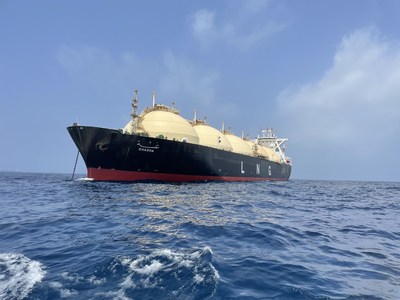UN Operation started to remove catastrophic oil spill in Red Sea

- Country:
- Yemen Rep
The United Nations today started a challenging operation to remove more than 1 million barrels of oil from the FSO Safer – a decaying supertanker moored off Yemen’s Red Sea coast that threatens a humanitarian and environmental disaster.
In a critical step forward in the operation, the salvage support vessel Ndeavor, operated by lead marine salvage company SMIT, a subsidiary of Boskalis, and contracted by the UN Development Programme (UNDP) to undertake the transfer of the oil to a secure vessel, arrived onsite today.
The Ndeavor’s crew of experts will inspect the Safer and undertake all necessary work to make it secure for the transfer of oil to the replacement tanker Nautica, which is standing by in Djibouti to travel to the site next month and receive the oil.
The start of the operation on the water comes after almost two years of political groundwork, fundraising and project development, led by UN Resident and Humanitarian Coordinator for Yemen, David Gressly, who was aboard the Ndeavor today.
In December 2021, United Nations senior management endorsed the plan to prevent a spill by transferring the oil to a safe vessel and install long-term replacement capacity for the Safer, and asked UNDP to implement it, contingent on funding. Drawing on expertise from the UN System as well as external contractors, partners and experts, the UN has worked round the clock to prepare for this unprecedented effort.
“Today marks a critical step in the operation to remove the threat posed by the FSO Safer,” said UN Development Programme Administrator Achim Steiner. “With the marine salvage support vessel Ndeavor onsite, the project can now begin in earnest. This marks the culmination of tremendous amounts of work and coordination among UN agencies, maritime lawyers, oil spill experts and many more. This is a proud moment for the United Nations and for the UN Development Programme as the implementing partner for the emergency phase of the project to remove the oil. It is also a clear sign of what multilateral cooperation can achieve, and a prime example of the importance of prevention. Aside from a possible humanitarian and environmental catastrophe, funds spent now will prevent as disaster that could cost billions in the future. With this in mind, we call again upon the international community and private sector to step up and support us to close the funding gap on the project so that we can finish what we have started.”
Even after the oil transfer averts the worst-case scenario of a spill of 1 million barrels, the decaying Safer will still hold a considerable amount of residual oil and pose a significant environmental threat to the Red Sea.
But the project remains underfunded, with $29 million still needed, including to safely moor the replacement vessel to a catenary anchor leg mooring buoy and towing the Safer to a green recycling yard.
“Member states, private companies and the general public have contributed $114 million to stop the Red Sea Spill, and so many other partners that have contributed expertise and advocated for this critical operation. I thank them all and want to recognize SMIT Salvage and the Fahem Group for presenting an initiative in 2021 that became the basis of the project being implemented today,” said David Gressly. “This is a great milestone, but we will not rest easy until the operation is completed. To do that we are counting on generous donors to close the remaining $29 million budget gap.”
- READ MORE ON:
- UN Development Programme
- David Gressly
- Red Sea
- Achim Steiner
- FSO Safer










